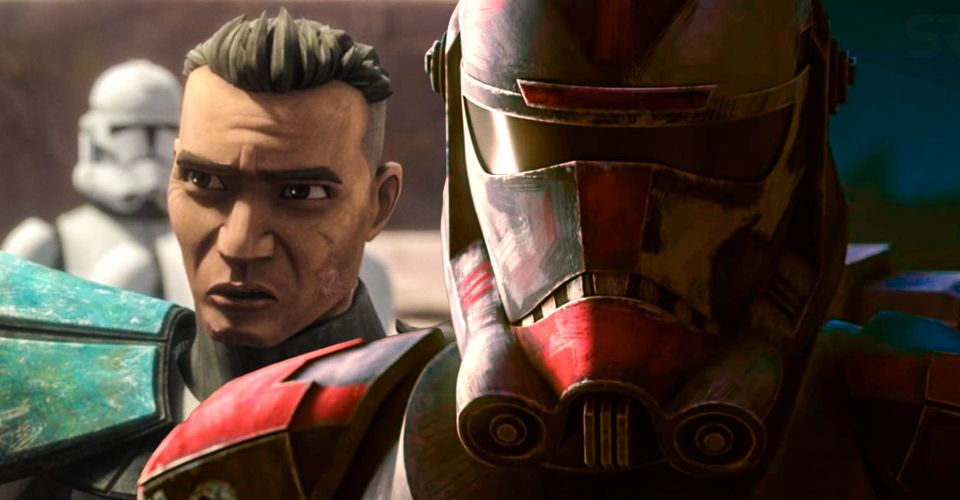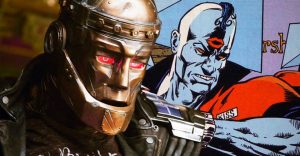The Bad Batch Hints Some Order 66 Clone Trooper Changes Aren’t Permanent

Star Wars: The Bad Batch continues to delve into the effects of Order 66 on clone troopers, and now hints that the brainwashing might not be permanent. In season 1, episode 11, “Devil’s Deal,” a notable clone officer acts differently from the rest of his brainwashed brethren. As shown throughout The Bad Batch, clone troopers under their control chips’ influence change in more ways than just killing their Jedi leaders. The chips influence the clones to adhere to Lama Su’s description of being “totally obedient” to the point that they enthusiastically support a regime even more oppressive than the Separatist Alliance they’d fought throughout the Clone Wars. One brainwashed clone’s behavior, however, hints that the effects of the chips might be temporary.
Before their control chips are activated, clone troopers are shown to be essentially good men with free will and generally friendly demeanors, despite varying personalities. Under their implants’ control, however, clones do the unthinkable, murdering their Jedi allies, cheering for Star Wars‘ autocratic Galactic Empire, and displaying antagonistic behavior towards allies, including other clones. The Bad Batch adds another disturbing detail by revealing that clones under their chips’ control are fully aware of their words and actions, but are completely unable to control themselves. Horrifyingly, clones watched helplessly as they murdered their friends and established an oppressive regime across the galaxy after fighting a three-year war to defeat a different one.
In “Devil’s Deal,” the Galactic Empire has occupied Ryloth with brainwashed clones and recruited Elite Squad troopers under the command of Admiral Rampart. One of Rampart’s subordinates, Clone Captain Howzer, is noticeably different from every other brainwashed clone seen thus far in The Bad Batch. While he is loyal to the Galactic Empire, Howzer retains the friendly demeanor that most clones had before Order 66, trying to help Cham Syndulla and his family work alongside the fledgling Empire rather than agitate the tense situation. Howzer also questions Rampart’s orders, an impossible action for most clones after Order 66 was issued. This may indicate that Order 66’s changes aren’t permanent, but there are other potential reasons for this.

Order 66 was, tragically, the ultimate purpose of the clone army. Thanks to their brainwashing implants, the clones fulfilled their purpose successfully, clearing the way for the Empire to rise. With the Jedi gone, and their coup successful, the Empire immediately began replacing the clone troopers with recruited soldiers. The control chips might not have been designed to work indefinitely, as clones’ usefulness effectively ended once the Jedi were wiped out and the Empire was established. If this is the case, there may be increasing instances of clones turning against the Empire, and this might be an upcoming storyline in The Bad Batch.
Howzer’s behavior might also be a rare case of a clone partially resisting his implant. As shown in Star Wars: The Clone Wars, Tup executed the order before it was issued due to a faulty chip, indicating that anomalies among clones and their control chips were rare but possible. Captain Rex’s implant worked normally, but he resisted its effects for a few moments (with great effort). Howzer’s implant might also be partially functional, compelling the captain to support the Empire but not changing his personality like most clones. Nevertheless, Howzer’s behavior could indicate that more clone defectors could appear in Star Wars: The Bad Batch, especially if Order 66’s effects on clones wane over time.
About The Author


















